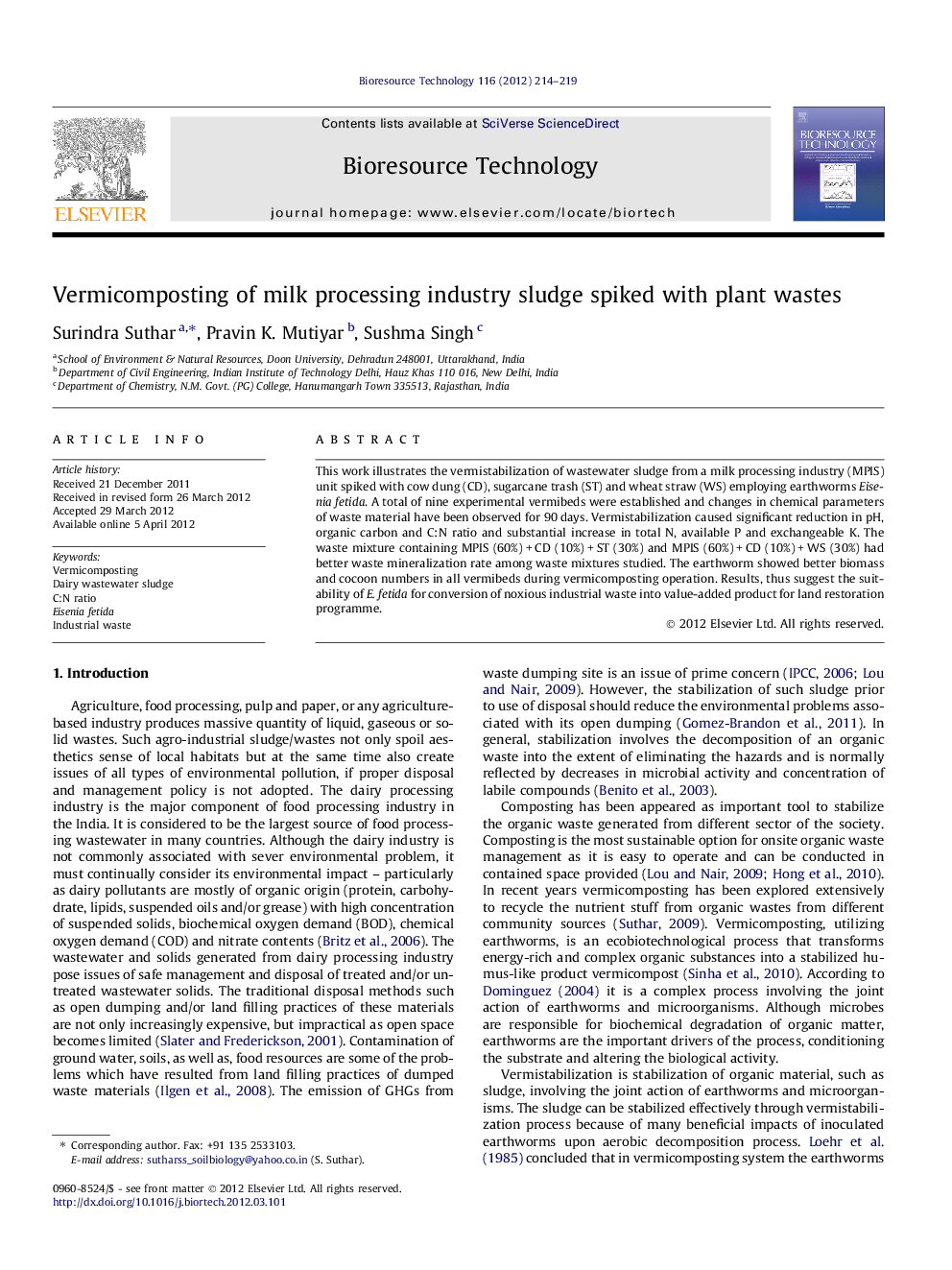| Article ID | Journal | Published Year | Pages | File Type |
|---|---|---|---|---|
| 7086724 | Bioresource Technology | 2012 | 6 Pages |
Abstract
This work illustrates the vermistabilization of wastewater sludge from a milk processing industry (MPIS) unit spiked with cow dung (CD), sugarcane trash (ST) and wheat straw (WS) employing earthworms Eisenia fetida. A total of nine experimental vermibeds were established and changes in chemical parameters of waste material have been observed for 90Â days. Vermistabilization caused significant reduction in pH, organic carbon and C:N ratio and substantial increase in total N, available P and exchangeable K. The waste mixture containing MPIS (60%)Â +Â CD (10%)Â +Â ST (30%) and MPIS (60%)Â +Â CD (10%)Â +Â WS (30%) had better waste mineralization rate among waste mixtures studied. The earthworm showed better biomass and cocoon numbers in all vermibeds during vermicomposting operation. Results, thus suggest the suitability of E. fetida for conversion of noxious industrial waste into value-added product for land restoration programme.
Related Topics
Physical Sciences and Engineering
Chemical Engineering
Process Chemistry and Technology
Authors
Surindra Suthar, Pravin K. Mutiyar, Sushma Singh,
